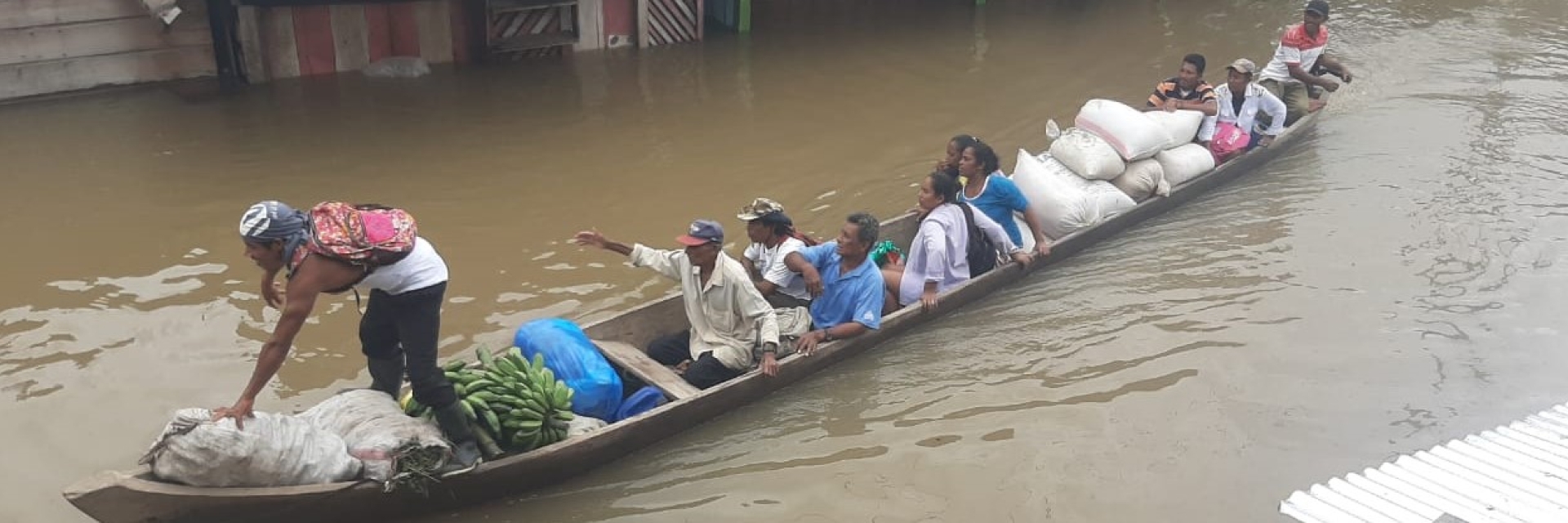
“I am a different woman”
After Hurricane Iota hit Nicaragua in mid-November 2020, Yodelsi Alfonso Lagos couldn’t find her house.
“We left the shelter but we did not know where we were,” said the 40-year-old mother of two daughters. “I went to my house, but I could not find it.”
The hurricane—the second to hit the country after Hurricane Eta landed on November 4—levelled her community of Lapan, near the Caribbean coast.
Before the hurricanes, “my community was very beautiful,” she said. After they hit, “our lives changed.”
Hurricane Eta was strong, but the family managed to ride it out in their house. Iota, which landed November 17, was stronger.
Warned ahead of time to seek shelter from the hurricane, the family went to a small facility for safety.
“We were very afraid,” she said of being in the shelter. “Everyone was crying and praying. We could hear the houses crashing outside and people screaming. We had never experienced a hurricane of this intensity.”
When the storm ended, Yodelsi saw all the houses were gone—including her house.
“The houses were blown away – the roofs of the houses, clothes, bread – everything that was in the houses was blown away,” she said.
Yodelsi said that as the townspeople looked around, nobody said a word. “It was like they were in another world. There was total silence and sadness.”
Looking at her destroyed house, “my mind was totally collapsed,” she said. “My cooking pot was broken, all our buckets and other kitchen utensils were gone—the wind blew them away. We had no food.”
Yodelsi was grateful that at least they were alive. “It was a miracle,” she said. “We had survived. Thank God nobody died.”
A week later, aid arrived from Oxfam, provided through the Humanitarian Coalition and the government of Canada.
Yodelsi and her family received hygiene kits, a water storage kit, kitchen utensils, personal protective equipment to be safe from COVID-19, and pumps to clean the town’s wells.
“I am a different woman,” Yodelsi said of the training she received to combat COVID-19, how to store and transport water to prevent contamination, and to defend her rights and the rights of women and girls in the community.
“More hurricanes will come, but I am prepared,” she said.